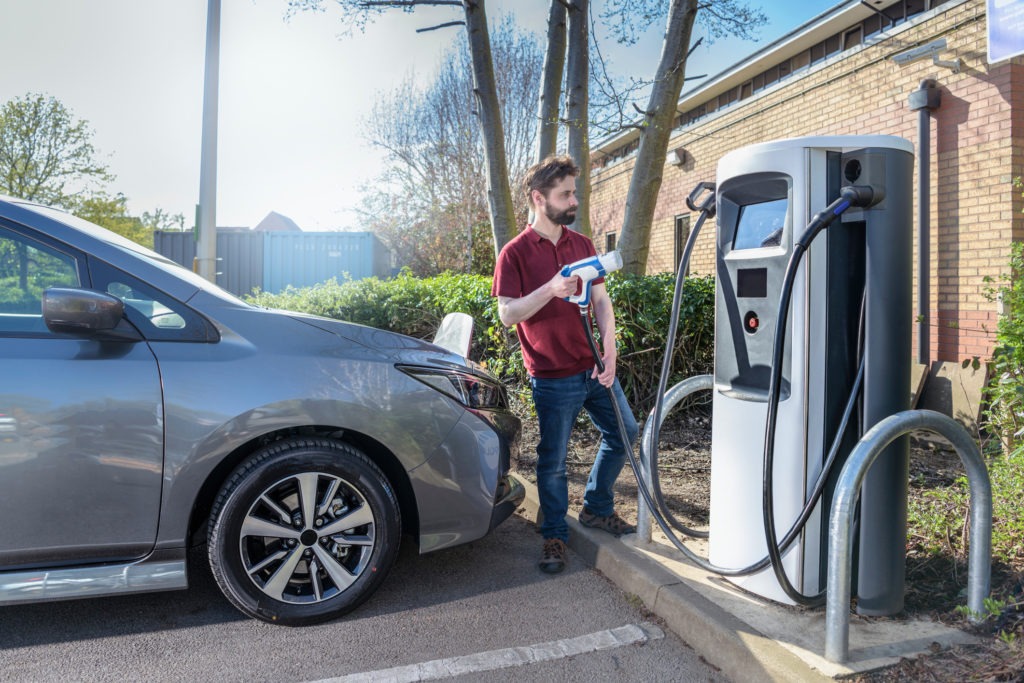Carmakers open to higher CO2 targets – if infrastructure accelerates
31 March 2021

Carmakers are open to higher European CO2 targets in 2030, so long as EU member states commit to a rollout of the required infrastructure. CEOs of Europe’s leading OEMs agreed on this position during a recent board meeting of the European Automobile Manufacturers’ Association (ACEA).
Undergoing a period of transition to more environmentally-conscious transport, carmakers are emphasising the importance of an open dialogue with national and international governments. Frans Timmermans, commission vice-president for the European Green Deal, recently sat down with manufacturers to discuss climate change, emissions and how the infrastructure is tied to the transmission.
CO2 and charging
Carmakers are open to increasing CO2 targets as long as they are directly linked to binding infrastructure commitments from member states. OEMs are unveiling new electrically-chargeable vehicles (EVs), investing in battery technology, and developing modular platforms. But if infrastructure remains wanting, consumers are left with a significant barrier to adoption and would be more likely to stick with polluting petrol or diesel engines.
So, ACEA is calling for the upcoming review of CO2 regulations to be based on EU-wide infrastructure deployment objectives. These goals are set as part of the revision of the Alternative Fuels Infrastructure Directive (AFID). This would mean creating a concrete link between CO2 targets and enforceable national targets for charging points and refuelling stations.
′Our industry’s huge investments in alternatively-powered vehicles are paying off. Indeed, last year nearly one in 10 cars registered in the EU was electrically chargeable. But this trend can only be sustained if governments start making matching investments in infrastructure,’ explained ACEA president and BMW CEO Oliver Zipse. ′That is why any new 2030 CO2 targets for cars must be conditional on a corresponding infrastructure ramp-up.’
He went on to say that all available drivetrain technologies need to be used to lower the carbon footprint of vehicle fleets. The number of charging points and hydrogen stations member states commit to building under AFID will determine a realistic CO2 target for 2030. Additionally, ACEA pointed to the need for a legal framework covering the rapid rollout of private-charging infrastructure at homes and in the workplace.
′Carmakers remain fully committed to carbon-neutral mobility, and we are bringing the required technology to the market at a very high pace. But this cannot be a one-sided obligation,’ Zipse said. ′Success of the overarching goal of lowering the CO2 emissions of the transport sector depends fundamentally on having the right infrastructure. We count on the Commission to make the necessary link between industry targets and those of EU member states.’
Talking with Timmermans
Securing regulatory ties of this nature means maintaining an open dialogue with those in charge. So, in a recent meeting with Timmermans, ACEA bosses discussed climate change ahead of the review of the CO2 regulations for cars and vans, as well as AFID. Zipse said the automotive industry shares the European Green Deal’s vision of climate neutrality by 2050. ′But the Green Deal needs to live up to its name; we need a real ′deal’ between our industry and EU governments to achieve the overarching goal of lowering the CO2 emissions of the transport sector.’
He affirmed the need for every available technology to ′play its part’ in the pursuit of lowering CO2 emissions. This is likely referring to the ongoing reliance on internal combustion engines (ICEs), as carmakers use the profits made on petrol and diesel sales to fund the expensive development of EV technology. Again, the need for infrastructure was a central talking point. Zipse confirmed that as carmakers bring the required technology to the market, the relevant fuelling and charging systems must keep pace. The ACEA chief said Timmermans did recognise how the transition of transport and the building of infrastructure are intrinsically linked.
′We need to move towards near-zero-emission transport as soon as possible. It is an enormous challenge, but I am confident the European car industry is up to the task. Our car manufacturers are innovative and experienced in producing affordable cars,’ Timmermans said. ′Our policies will be designed to support the shift: stricter emissions norms to boost the uptake of clean vehicles and investments in charging infrastructure and battery production to support the already rapid growth. By managing this transition, we will make it a just transition. And together we will make electric driving accessible to all.’